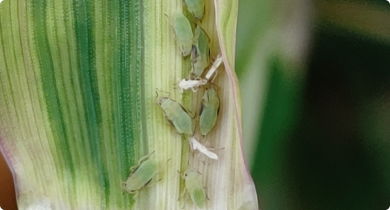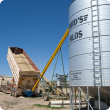Crops
The Department of Primary Industries and Regional Development continues to support the growth and international competitiveness of all crop industries in Western Australia.
With a 2400 kilometre span from its tropical north to its temperate south, WA supports a broad range of cropping industries from rain-fed winter cereals through to irrigated horticultural crops.
In the 2012/13 year the WA cropping industries exported a total of $3.9 billion which comprised: $3.1 billion of cereals, $859 million of pulses, pastures and oilseeds, $142 million of horticultural crops. The major contributors to these exports were wheat ($2.7 billion), canola ($756 million), barley ($377 million), lupins ($42 million), carrots at $48 million, oats ($12 million), and strawberries at $5.5 million.
Filter by search
Filter by topic
- Pests, weeds & diseases (93) Apply Pests, weeds & diseases filter
- (-) Remove Control methods filter Control methods
- Grains (84) Apply Grains filter
- Chemicals (77) Apply Chemicals filter
- Herbicides (42) Apply Herbicides filter
- Diseases (34) Apply Diseases filter
- Grains research & development (30) Apply Grains research & development filter
- Fungi (28) Apply Fungi filter
- Crop diseases (28) Apply Crop diseases filter
- Wheat (23) Apply Wheat filter
- Weeds (22) Apply Weeds filter
- Mechanical, physical and cultural (20) Apply Mechanical, physical and cultural filter
- Crop weeds (19) Apply Crop weeds filter
- Fungicides (15) Apply Fungicides filter
- Canola (15) Apply Canola filter
- Barley (13) Apply Barley filter
- Lupins (12) Apply Lupins filter
- Pests (10) Apply Pests filter
- Pulses (9) Apply Pulses filter
- Oats (7) Apply Oats filter
- Field peas (6) Apply Field peas filter
- Pastures (5) Apply Pastures filter
- Nematodes (4) Apply Nematodes filter
- Pest insects (4) Apply Pest insects filter
- Insecticides (4) Apply Insecticides filter
- Grains Research & Development (4) Apply Grains Research & Development filter
- Horticulture (4) Apply Horticulture filter
- Food, export & investment (3) Apply Food, export & investment filter
- Pasture management (2) Apply Pasture management filter
- Livestock & animals (2) Apply Livestock & animals filter
- Viruses & virus-like (2) Apply Viruses & virus-like filter
- Fruit (2) Apply Fruit filter
- Strawberries (2) Apply Strawberries filter
- Food safety (2) Apply Food safety filter
- Biosecurity (2) Apply Biosecurity filter
- Biological control (2) Apply Biological control filter
- Food & beverages (2) Apply Food & beverages filter
- Biosecurity & quarantine (2) Apply Biosecurity & quarantine filter
- Plant biosecurity (1) Apply Plant biosecurity filter
- Preventing residues (1) Apply Preventing residues filter
- Production & postharvest (1) Apply Production & postharvest filter
- Nursery & cutflowers (1) Apply Nursery & cutflowers filter
- Residues in crops (1) Apply Residues in crops filter
- Feeding & nutrition (1) Apply Feeding & nutrition filter
- Bacteria (1) Apply Bacteria filter
- Climate, land & water (1) Apply Climate, land & water filter
- Harvesting (1) Apply Harvesting filter
- Irrigated crops (1) Apply Irrigated crops filter
- Livestock management (1) Apply Livestock management filter








